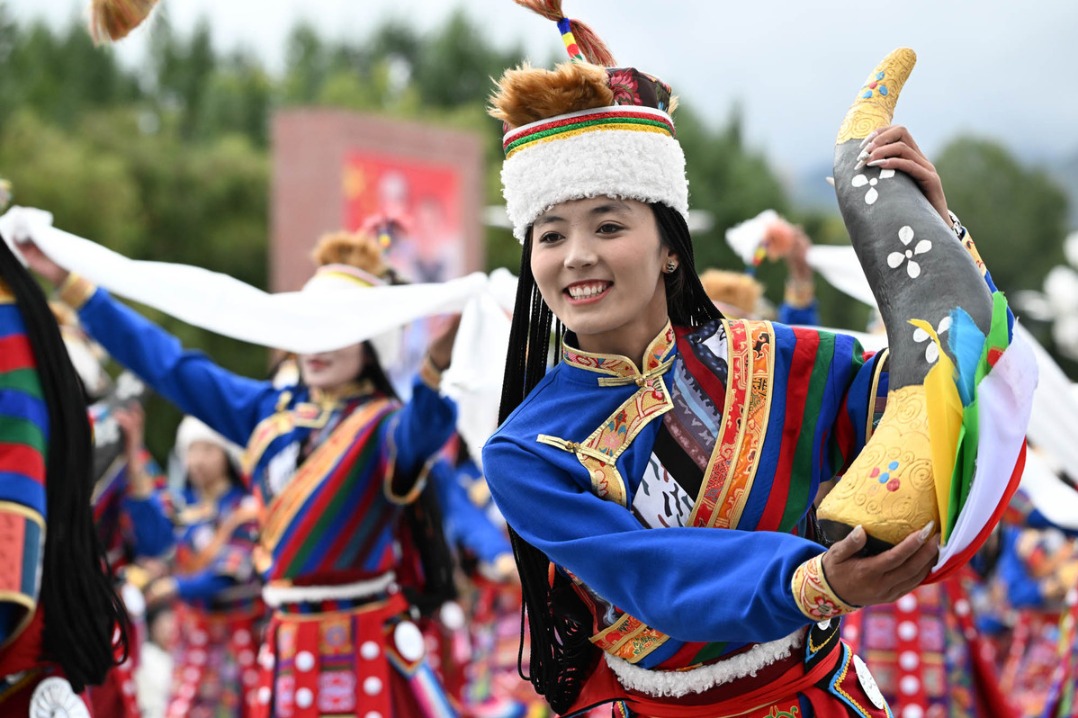Pears, peaches offer taste of the future


Sales setback
Duan rented more than 133 hectares of pear orchards from local farmers and expected to make a good profit from the species' fame. She thought the organic, pollution-free plantation would help her win market share.
However, when the first harvest season came in the fall of 2016, she was frustrated by the poor sales of the fresh fruit.
"Ordinary customers see organic fruit as misshapen, while high-end consumers still need to be persuaded to trust the quality," said Duan, adding that she believes good opportunities lie in the nation's rural vitalization strategy.
In 2012, the central authorities listed Dangshan as a national key county for poverty alleviation.
At the time, more than 140,000 of its 1 million residents were defined as poverty-stricken, according to the Suzhou government. Meanwhile, the State Council, China's Cabinet, said the poverty threshold, which rose every year, was annual net income of 2,300 yuan ($355) per person.
In 2015, the China Food and Drug Administration, the predecessor of the National Medical Products Administration that was founded three years later, was ordered to help alleviate poverty in Dangshan.
The NMPA sends an official to Dangshan to serve as deputy county mayor and another as first Party secretary of Lintun village. Each serves a two-year term.
In 2014, the State Council mobilized about 1 million poverty alleviation workers to survey the country's impoverished population and open personal files for each poor person.
The result of the survey showed that more than 20 percent of Lintun's roughly 5,000 residents were poverty-stricken.
Instead of pears, the fruit most planted in Lintun is the yellow peach, fields of which cover more than 300 of the 400 hectares of agricultural land in the village.
"The fruit was favored by local canning factories, and one of their main markets was the United States," said Zhang Nianliang, who finished his term as first Party secretary in Lintun last month.
"When I arrived at the village two years ago, some canning factories had failed to buy peaches from the farmers. Later, I learned that their business had been affected by trade frictions between China and the US."
Thanks to his efforts and those of his predecessors, some young, well-educated returnees to the village started e-commerce businesses, which helped relieve the sales pressure to a certain extent, he said.
In 2017, veteran Wang Xiaohui returned to his hometown in Dangshan to sell pears via e-commerce platforms.
"My father used to sell fruit on the street, but a whole day's toil would only amount to 200 yuan at most," he said, adding that traditional peddling is a tough way to make a living.
























